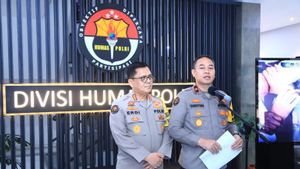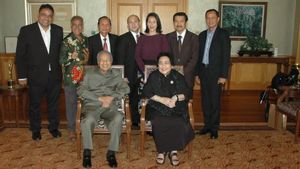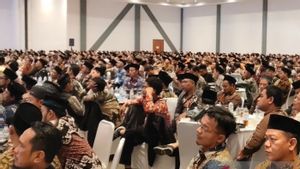JAKARTA The plan for ratifying Government Regulations (PP) on Management of State Civil Apparatus (ASN) as a derivative of the revision of the ASN Law is feared to be an entry point for the re-implementation of ABRI's dwifunction practices.
This is because the PP is suspected to regulate positions within the scope of ASN that can be filled by TNI soldiers and Polri personnel who are still active in service. If true, then it will threaten democracy. Such rules can revive ABRI's dwifunction practices such as the New Order era," said the Imparsial Director, Gufron Mabruri, Sunday, March 17, 2024.
He explained that the elimination of ABRI's duality was based on the background of the TNI which is a state defense tool and is tasked with facing the threat of war. Meanwhile, the National Police is tasked with maintaining security and public order (kamtibmas) and law enforcement.
Therefore, both the TNI and Polri who are still active should not be involved in political activities and occupy civilian positions that are not their functions and competencies. Thus, the placement of the TNI and Polri in civil office is something that violates their identity.
SEE ALSO:
"One of the mandates of Reform is to revoke the role of the TNI and Polri in political matters, and return their functions to military and professional law enforcement officers," said Gufron.
According to him, if the government continues the preparation of PP and accommodates civilian positions filled by the TNI-Polri, then this further proves that the current government policy has deviated far and has contradicted the spirit of Reform.
Gufron reminded that the democratic life that was achieved and enjoyed today was the fruit of the political struggle of various pro-democracy groups in 1998. Because of this, the political elites, especially those who are occupying strategic positions in government, should protect and even advance the democratic political system and dynamics, not the other way around.
He emphasized that the abolition of the ABRI Dwifunction was part of the democratization agenda in 1998 not only as a form of correction to the deviation of functions and roles of ABRI which were more as a tool of power in authoritarian times, but also to encourage the realization of a professional TNI and more broadly is part of the agenda of democratic development in Indonesia.
"One of the practice of ABRI's Dwifunctions that has been abolished is the placement of active members of the TNI and Polri in civilian positions, both in ministries, state institutions and local governments, both governors, regents, mayors," said Gufron.
The English, Chinese, Japanese, Arabic, and French versions are automatically generated by the AI. So there may still be inaccuracies in translating, please always see Indonesian as our main language. (system supported by DigitalSiber.id)
















